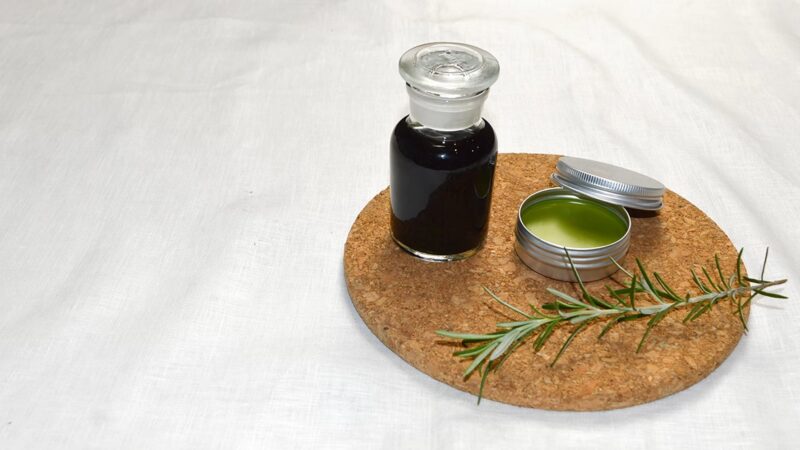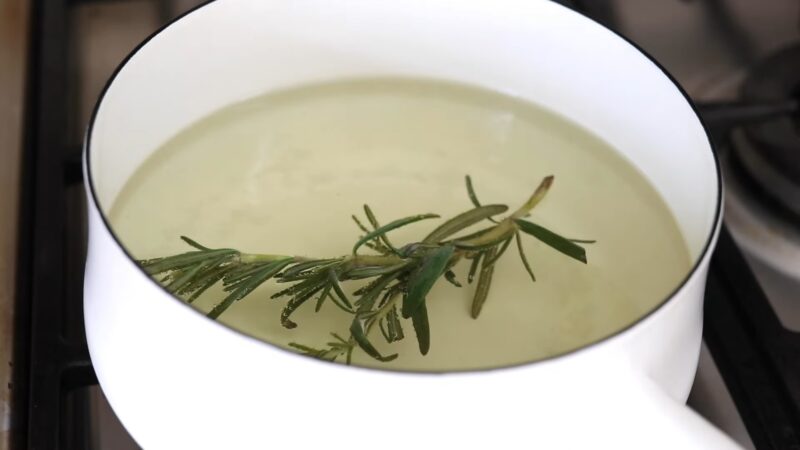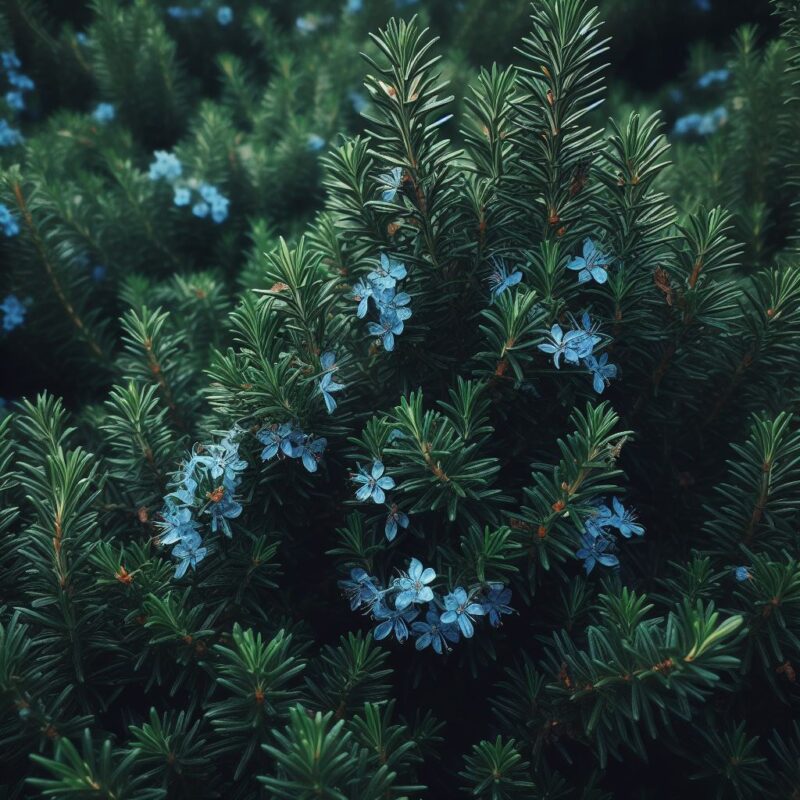Rosemary, a fragrant herb, has been revered for centuries for its multifaceted benefits. From its Latin origin meaning “dew of the sea” to its widespread use in culinary, spiritual, and healing practices, rosemary has woven itself into the fabric of various cultures.
This article delves deep into the world of rosemary, exploring its history, cultivation techniques, and the myriad ways it touches our lives
Names
It is from the Latin, ros, dew, and marinus, sea hence the common name dew of the sea. Other common names it goes by are Compass Plant, Compass Weed, Elf Leaf, Guardrobe, Incensier (Old French), Libanotis (Greek), Polar Plant, Rosmarinus coronarium, Rosemary, and Sea Dew.
Cultivation

Rosemary thrives in planting Zones 8-10 and is typically grown in containers in other zones to be moved indoors during winter. It prefers full sun but can handle some light shade, especially in well-draining soil.
While it’s possible to grow rosemary from seeds, the process is notably slow. Starting new plants from stem cuttings is more effective.
For garden planting, space the plants 2 to 3 feet apart. If container-growing, opt for a pot that’s snug to the root ball, as rosemary flourishes when slightly crowded.
Indoors, ensure rosemary gets at least four hours of direct sunlight or twelve hours under artificial light. Water deeply but let the soil dry moderately between sessions.
You can harvest rosemary leaves anytime, but their flavor peaks right before flowering. In gardens, it complements the cabbage family, beans, carrots, and sage, warding off pests like cabbage moths, bean beetles, and carrot flies.
Additionally, it can be placed in books and drawers as a natural moth repellent.
History

The ancients were well acquainted with rosemary which was associated with remembrance, fidelity, and love. It has always been used in witchcraft and has many legends attached to its history.
It was used at weddings as well as funerals, as incense in religious ceremonies, and for decking churches and banquet halls at festivals. One legend claims that a man who is not sensitive to the scent of the aromatic herb will never be truly able to love a woman.
The Treasury of Botany says: ‘There is a vulgar belief in Gloucestershire and other counties, that Rosemary will not grow well unless where the mistress is “master”; and so touchy are some of the lords of creation upon this point, that we have more than once had reason to suspect them of privately injuring a growing rosemary in order to destroy this evidence of their want of authority.’
Sir Thomas More wrote: ‘As for Rosmarine, I lett it runne all over my garden walls, not onlie because my bees love it, but because it is the herb sacred to remembrance, and, therefore, to friendship; whence a sprig of it hath a dumb language that maketh it the chosen emblem of our funeral wakes and in our buriall grounds.’
Culinary Uses
Rosemary is popular as an aromatic and flavorful culinary seasoning. It is available whole, ground, or even fresh and is excellent with lamb or pork.
Spiritual Properties and Uses in Magic

Rosemary has the property of opening one’s heart to the part of all of us that is still childlike and innocent. It is strong yet delicate and brings happiness and contentment.
Smelling the fragrance and bathing in an infusion of rosemary is said to preserve youthfulness and bring success. When placed in the bedroom rosemary drives away nightmares and ensures a good sleep, it will protect the sleeper from all harm.
It is used as a charm against the evil eye and has exorcising qualities. Rosemary is one of the most ancient incense and can be used as a substitute for frankincense.
When it is burned it emits purifying vibrations that will rid an area of negativity prior to performing magic. If used as incense it enhances the sacredness of any occasion.
When using holy water take a sprig of rosemary and sprinkle the water around with it. Wearing or burning this herb when divining will help the mind to be clear and the heart to be open.
Wash the hands in an infusion before healing work and the leaves mixed with Juniper berries are burned to promote healing. Rosemary has long been used in love and lust potions, it preserves love.
When planted at the entrance of your home it will impart an aura of protection to all who are present, some even say it will keep thieves away. If you wish to receive knowledge burn rosemary and inhale the smoke even the very aroma of the plant will improve the mind and the memory.
Healing Properties and Uses

Rosemary increases circulation and slightly raises the blood pressure warming the body from the inside out. Internally it stimulates the liver and digestion, promotes blood circulation, tones up the blood vessels, invigorates, and increases your awareness.
To make a tea of rosemary steep two teaspoons of the dried flower tops in one cup of water for twenty minutes, take one-fourth cup up to four times a day. Use this as a mouthwash for bad breath.
This wine is excellent for those who lack exercise such as the elderly, the convalescent, and all who suffer from fatigue. Use rosemary externally in salves for eczema, wounds, and sores and as a treatment for muscle and joint rheumatism.
A bath preparation made from rosemary leaves or oil of rosemary is refreshing and stimulating when one is fatigued and can help prevent headaches. It will enliven you when added to soap or shampoos.

Rosemary tea relieves depression. It will aid in preventing flatulence, bloating, and disturbances of the intestines, stomach, and gall bladder. Steep rosemary in white wine for a week and strain, rub the wine on gouty or paralyzed limbs internally it stimulates the brain, nervous system, and kidneys.
Rosemary is also smoked as an herbal ‘tobacco’ to relieve asthma and lung conditions.
Caution
Pregnant women should not consume rosemary internally. When using rosemary tea the dose should not exceed one cup per day.
Final Words
The journey of rosemary, from ancient rituals to modern kitchens, is a testament to its enduring allure. Its rich history, combined with its myriad uses, makes it a staple in gardens and homes alike.
If you aim to elevate your dishes, explore spiritual journeys, or discover its medicinal benefits, rosemary is a classic herb that delivers a sprinkle of nature’s enchantment. For deeper insights on these subjects, stay tuned to this site.
